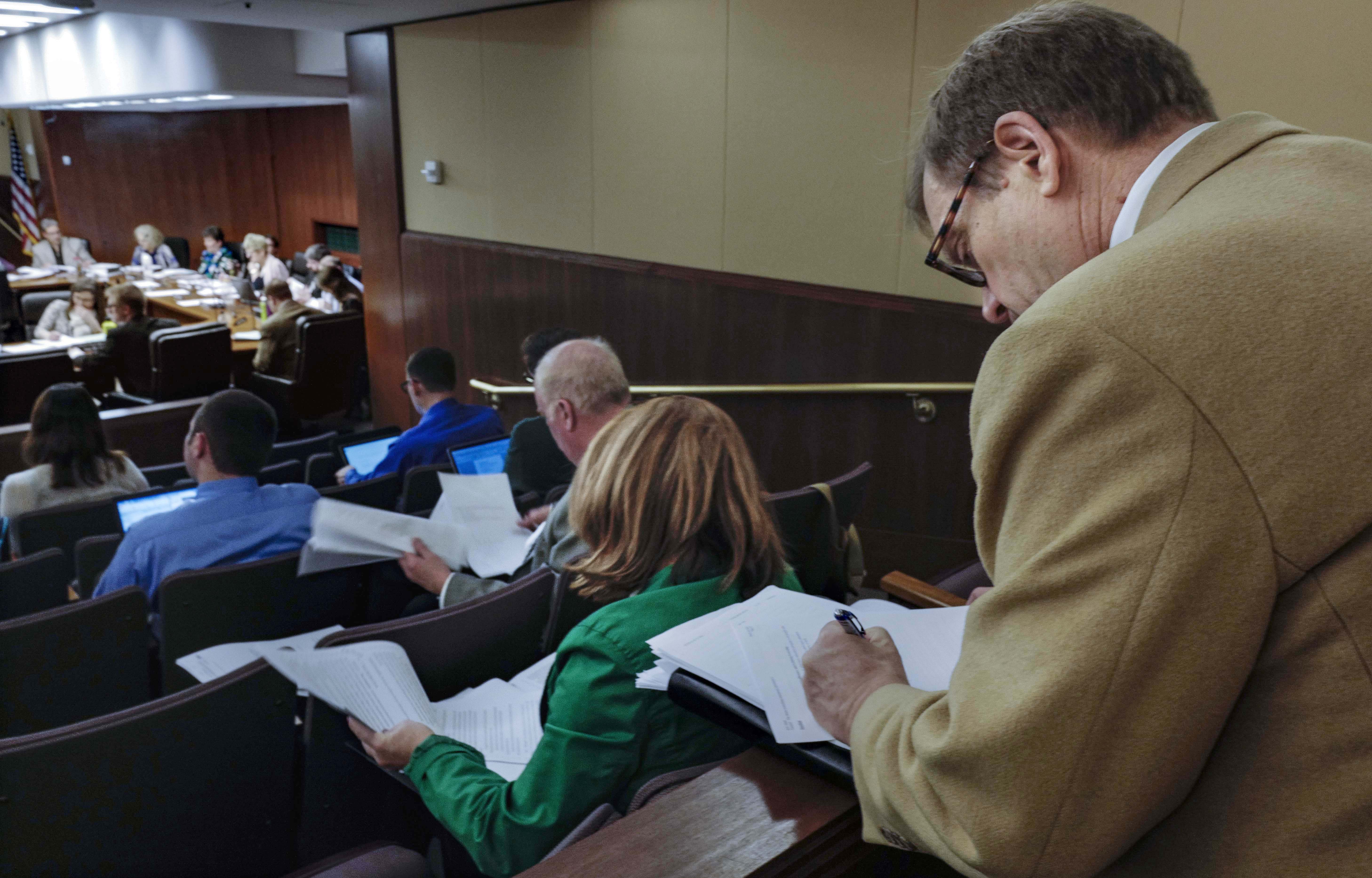Omnibus education policy bill takes shape

(Updated 5:27 p.m.)
While deferring work on Minnesota’s teacher licensing system, this session’s omnibus K-12 education policy bill addresses student data security and privacy, parental rights and other issues brought before the House Education Innovation Policy Committee this session.
“This is a bill about empowering schools and empowering our parents,” said Committee Chair Rep. Sondra Erickson (R-Princeton), who sponsors HF3066.
The committee approved the bill Thursday, adopting Erickson’s delete-all amendment and several others. The bill goes next to the House Education Finance Committee.
The bill addresses parental concerns about the data collected on students in provisions that direct the Education Department to develop a detailed data security plan and prohibit most statewide student surveys about a variety of experiences and behaviors including substance abuse and sexual activities.
Several lawmakers and the Education Department oppose restricting the state’s ability to gather information about and intervene with students engaging in risky behavior. For example, Rep. Yvonne Selcer (DFL-Minnetonka) said that when she served on a school board, her district used information from the Minnesota Student Survey to address student drinking in the community and saw a decrease reported in the next survey.
The committee rejected an amendment offered by Rep. Carlos Mariani (DFL-St. Paul) to remove the section restricting student surveys. “I’m not even sure what the implication of this language is if we leave it there,” he said. “It’s overly broad and vague and could be harmful.”
Parent rights amendment debated
A reader-friendly reorganization of statutes to group together existing parental rights provisions was uncontroversial, but an amendment offered — but later withdrawn — by Rep. Eric Lucero (R-Dayton) to unequivocally declare parents “the ultimate authority over their children’s education” sparked debate.
“There are very few things more important than the relationship between a child and a parent,” Lucero said. “I’m trying to eliminate any ambiguity.”
“It’s that very attempt to eliminate any wiggle room in this that bothers me,” said Rep. Barb Yarusso (DFL-Shoreview). The existence of child protective services and other welfare programs is “clear evidence that it is not always in the best interest of the child for the parent to be the ultimate authority,” she said.
Lucero said the proposal would hinge on the definition of “parent.”
“It’s not a minor thing that we should tweak later,” Yarusso said. “Don’t stuff it in the bill now when it’s not thrashed out. … It raises too many really big issues.”
Other notable provisions in the bill would:
- require the Minnesota State Colleges and Universities system to establish “college ready” benchmark scores on the Minnesota Comprehensive Assessments and prohibit MnSCU institutions from requiring students meeting the benchmarks to take remedial classes;
- establish a legislative study group to make recommendations on restructuring the state’s teacher licensure system;
- reduce reporting requirements for school districts who serve as authorizers of charter schools; and
- align state law with the new federal Every Student Succeeds Act and remove obsolete references to the No Child Left Behind Act.
The committee adopted amendments that would do the following:
- allow districts to administer a citizenship test to students as part of activities honoring Constitution Day and Citizenship Day;
- require the Education Department to report data on teachers’ self-reported race and ethnicity; and
- provide additional transparency in and oversight of the Perpich Center for Arts Education in Golden Valley.
The committee rejected an amendment offered by Rep. Jim Davnie (DFL-Mpls) as a “simple step forward” to clarify existing language in teaching licensure law while waiting for the study group to deliberate on more substantial changes. “We don’t have to wait on making it easier for people to understand what they need to do to achieve licensure,” he said.
What's in the bill?
The following are select bills that have been incorporated in part or in whole into the omnibus K-12 education policy bill:
Related Articles
Search Session Daily
Advanced Search OptionsPriority Dailies
Ways and Means Committee OKs proposed $512 million supplemental budget on party-line vote
By Mike Cook Meeting more needs or fiscal irresponsibility is one way to sum up the differences among the two parties on a supplemental spending package a year after a $72 billion state budg...
Meeting more needs or fiscal irresponsibility is one way to sum up the differences among the two parties on a supplemental spending package a year after a $72 billion state budg...
Minnesota’s projected budget surplus balloons to $3.7 billion, but fiscal pressure still looms
By Rob Hubbard Just as Minnesota has experienced a warmer winter than usual, so has the state’s budget outlook warmed over the past few months.
On Thursday, Minnesota Management and Budget...
Just as Minnesota has experienced a warmer winter than usual, so has the state’s budget outlook warmed over the past few months.
On Thursday, Minnesota Management and Budget...